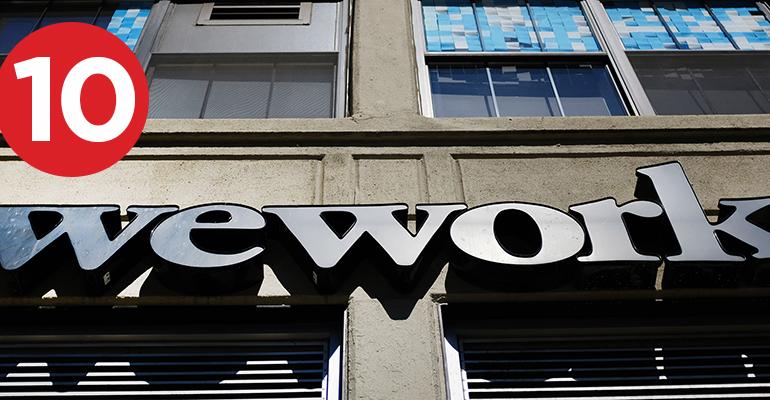- WeWork Reset Smacks of Desperation “We Co., the parent of office sublessor WeWork, is tidying up its initial public offering like one would a dormant rental property. It remains a tough sell.” (Wall Street Journal, subscription required)
- Trump Administration Aims to Privatize Fannie Mae and Freddie Mac “The Trump administration said it would support returning mortgage-finance giants Fannie Mae and Freddie Mac to private hands, a development that could keep the companies at the center of the housing market for decades to come. (Wall Street Journal, subscription required)
- Here’s How Much Homeowners Can Make Off The College Football Craze (It’s A Lot) “When it comes to college football, there’s no price too high for fan loyalty. Last year, fans in the SEC conference reportedly dropped between $1,212 and $4,232 (depending on their team) on everything from tickets to food and merchandise. However, when factoring in hotel prices, the average spend got as high as $6,200 per fan–a nearly $2,000 premium.” (Forbes)
- Nordstrom Opens Its First Product-Free Mini Store “Nordstrom opened its first concept store on the Upper East Side Thursday, a merchandise-free, miniature location that will also expand to the West Village later this month.” (Crain’s New York Business)
- Why Sabal Sees Big Opportunity in Secondary, Tertiary Markets “The shortage of workforce and affordable housing has become a national crisis—not only an issue in major metros and primary markets. With limited supply and rising demand, national lender Sabal Capital Partners sees an opportunity to address the housing crisis in secondary and tertiary markets.” (GlobeSt.com)
- Lords of Trade War: Why Industrial Investors Aren’t Fretting About a Downturn “Today, with three-quarters of economists expecting a recession by the end of 2021, according to a National Association for Business Economics survey, you might expect trade-war fears to weigh especially heavily on logistics landlords. After all, no real estate sector is as directly exposed to risk surrounding the $517.36 billion that American consumers spent on online goods last year, not to mention the goods being transported to brick-and-mortar retailers.” (Commercial Observer)
- Saltbox to Debut Novel Shared Workspace Concept in Atlanta “The shared workspace sector continues to expand and evolve, and Saltbox Inc. is playing a role in the transformation. The new startup has just announced its first location, a 27,000-square-foot facility to open in Atlanta, providing a combination of coworking and co-warehousing space for what it calls the ‘concrete class.’” (Commercial Property Executive)
- Why It is a Good Time to be Active in This Market “In this interview below with Philip D. Voorhees, vice chairman of CBRE National Retail Partners-West, we learn more about secondary and tertiary markets, why retail is currently out of favor with the institutional cohort and some good advice for today’s CRE investor.” (GlobeSt.com)
- Salt Lake City Air Pollution Effort Focused on Big Buildings Off to a Slow Start “Salt Lake City has put new rules in place requiring owners of large commercial buildings to report their energy use. But there are signs that compliance with the city’s new Energy Benchmarking and Transparency Ordinance is off to a slow start.” (The Salt Lake Tribune)
- Seattle City Council to Consider Ban on Natural Gas for New Homes, Buildings “The Seattle City Council will consider a ban on natural gas for newly constructed homes and buildings, favoring the use of electricity for heating and cooking.” (Seattle Times)
0 comments
Hide comments





